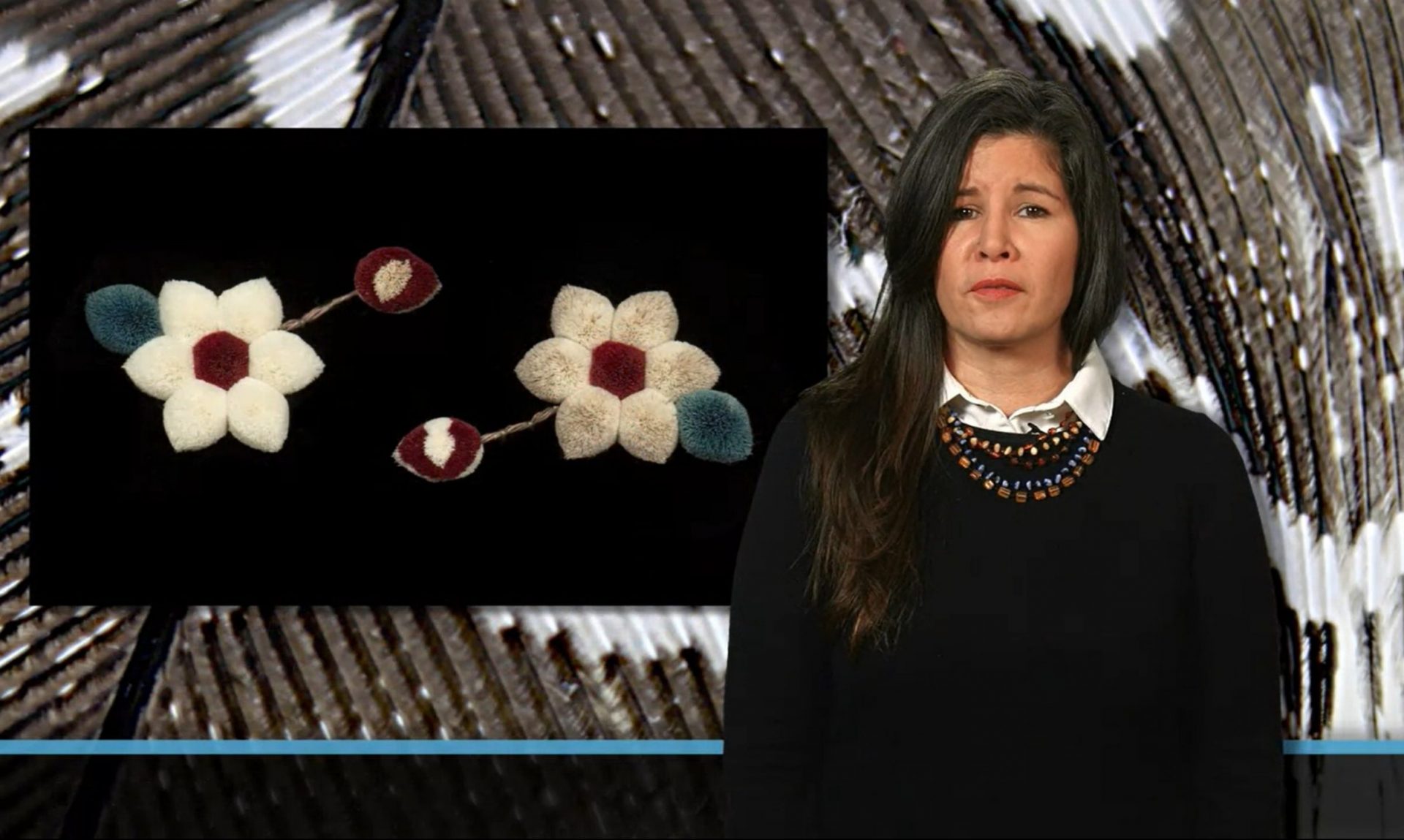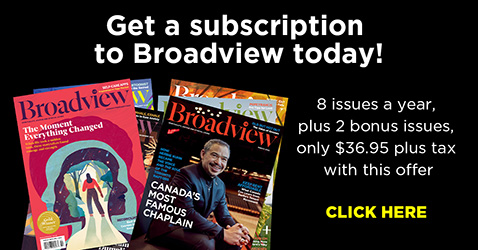Canada has an ugly history. For those of us who didn’t grow up learning much about Indigenous cultures and experiences, it can be hard to fully grasp the magnitude of theft, broken promises, and genocide that settlers used to build Canada.
The discoveries of mass, unmarked graves on the sites of former residential schools over the spring and summer were painful and disturbing reminders for those unfamiliar with the extent of Indigenous suffering through Canadian history. There have been countless examples of the racism and injustice Indigenous communities face, long before these revelations. But now, many Canadians are willing to learn more.
More on Broadview:
- How Indigenous burning practices can help stop destructive wildfires
- 8 common claims of residential school deniers and how to shut them down
- What is restorative justice? On this First Nation, a tool to keep youth out of court
The University of Alberta’s online course about Indigenous issues saw 75,000 people enroll five weeks after the initial discovery of the remains of 215 children in Kamloops, B.C., according to CBC News. And there are more classes like the one from U of A available with unlimited participation and open access. Most of them are online and free, with the option to pay a fee if you want to earn a shareable certificate.
Here are some of the courses that can help you learn more about Indigenous issues.
Indigenous Canada
Institution: University of Alberta via Coursera
Cost: Free (or $61 for a certificate)
Length: 12 weeks, three-five hours per week (it’s recommended to log on three times a week, but because it’s self-directed, that’s flexible)
Dates: Start at any time
Curriculum: Video lectures (with text transcripts available), readings, weekly multiple-choice quizzes, optional online discussions
This course quickly became the most popular online class in Canada when it launched as part of the University of Alberta’s Faculty of Native Studies in 2017, and gained further prominence (and a spike in enrolment) in the summer of 2020 after a recommendation from actor Dan Levy. It’s a thorough and robust syllabus starting with creation myths intended to illustrate worldviews of a few specific groups (the Inuit, Nehiyawak/Cree, Kanien:keha’ka/Mohawk, and Tlingit) and going on to cover residential schools, gender, urban living, contemporary political movements, art and pop culture. It provides Indigenous perspectives on the history many of us probably learned from a European point of view — first contact, treaties, the fur trade — and goes on to explain how that history came to impact contemporary government policy.
This is the course for you if you’re looking for an overview of the history and culture of the Indigenous communities native to what is now Canada, how they viewed the world prior to and during their interactions with European settlers, and how those dynamics continue to play out politically and culturally today.
Aboriginal Worldviews and Education
Institution: University of Toronto via Coursera
Cost: Free (or $61 for a certificate)
Length: Six weeks (it’s recommended to take the class twice a week)
Dates: Start at any time
Curriculum: Video lectures (with text transcripts available), film and TV clips, readings, short peer-graded writing assignments, quizzes
This course is all about re-contextualizing what we’ve learned about Canada and its history through Indigenous points of view. It’s offered through U of T’s School of Education with the focus on how education and mindset contribute to the way non-Indigenous people think about Indigenous issues.
A large portion of the curriculum is based on what Marlene Brant Castellano, the first Indigenous person to become a full-time professor in a Canadian university, identified as the characteristics of Indigenous knowledge: that it’s personal and not universal, orally transmitted, experiential, holistic, and conveyed through narrative.
In addition to the content directly about the education system, the class also touches on an analysis of then-Prime Minister Stephen Harper’s 2008 apology for residential schools and episodes of the 2012 CBC series “8th Fire,” which involved former TV host Wab Kinew traveling the country to examine relationships Canadians have with Indigenous people.
This is the course for you if you want a better understanding of how Indigenous communities view our political and social landscape, with a specific emphasis on knowledge-sharing.
Reconciliation through Indigenous Education
Institution: University of British Columbia via EdX
Cost: Free (or $63 for a certificate)
Length: Six weeks, two to four hours per week
Dates: Next dates have yet to be announced. Broadview has reached out to UBC to confirm 2021 start dates and will update the piece when we hear back.
Curriculum: Video lectures, narration from Indigenous knowledge keepers, self-assessed checklists, online discussions
Like the University of Toronto class, this one has an educational lens, although it isn’t just for teachers. Changing academic institutions is a central tenet of reconciliation, and both classes take up that responsibility. How can classrooms — or even everyday interactions — respect and uphold Indigenous experiences? What can we all learn from Indigenous ways of knowing?
This curriculum is all about learning — from the land, from storytelling, from the way Indigenous communities teach — and ends with a focus on thoughtful and respectful relationships between Indigenous and non-Indigenous people living in Canada.
This is the course for you if approaches to teaching and learning are your way into understanding new topics. And, because the course is classified as intermediate, this would be best for you if you’re someone who already has some baseline knowledge of Indigenous issues.
Indigenous People’s Rights
Institution: Columbia University via EdX
Cost: Free (or $63 for the verified track)
Length: 10 weeks, two-four hours per week
Dates: Start at any time
Curriculum: Video lectures (with text transcript), recommended readings, videos of experts answering common questions, optional discussion questions.
Unlike the previous courses, the framework for this one is largely around legal rights and governmental recognition, rather than Indigenous perspectives or worldviews. It focuses on events like the declaration of Indigenous Peoples Day at the 1977 Geneva UN Conference, on the legality of treaty agreements, and on the U.N.’s Declaration on the Rights of Indigenous Peoples (UNDRIP).
This is the only American course on the list, although its focus is on Indigeneity globally. There are references to the Maori protests against the British Crown, for instance. There’s also a discussion of the fascinating history of the Zapatista Uprising in Mexico, where armed insurgents, many of them rural and Indigenous, declared war on the Mexican government. Even the group’s former “leader,” Subcomandante Marcos, took orders from a council of Indigenous elders.
The course doesn’t focus specifically on Canada’s colonial history or government, although it does feature an appearance by UBC professor Sheryl Lightfoot, Canada Research Chair in Global Indigenous Rights and Politics, talking about the Indian Act and the construction of the Site C Dam.
This is the course for you if you’re already well-read on Indigenous issues specific to Canada, and you’re looking for a legal and political background on Indigenous rights, treaties, and self-determination more globally.
***
Maija Kappler is a writer and editor based in Toronto.
We hope you found this Broadview article engaging.
Our team is working hard to bring you more independent, award-winning journalism. But Broadview is a nonprofit and these are tough times for magazines. Please consider supporting our work. There are a number of ways to do so:
- Subscribe to our magazine and you’ll receive intelligent, timely stories and perspectives delivered to your home 8 times a year.
- Donate to our Friends Fund.
- Give the gift of Broadview to someone special in your life and make a difference!
Thank you for being such wonderful readers.
Jocelyn Bell
Editor/Publisher


Comments